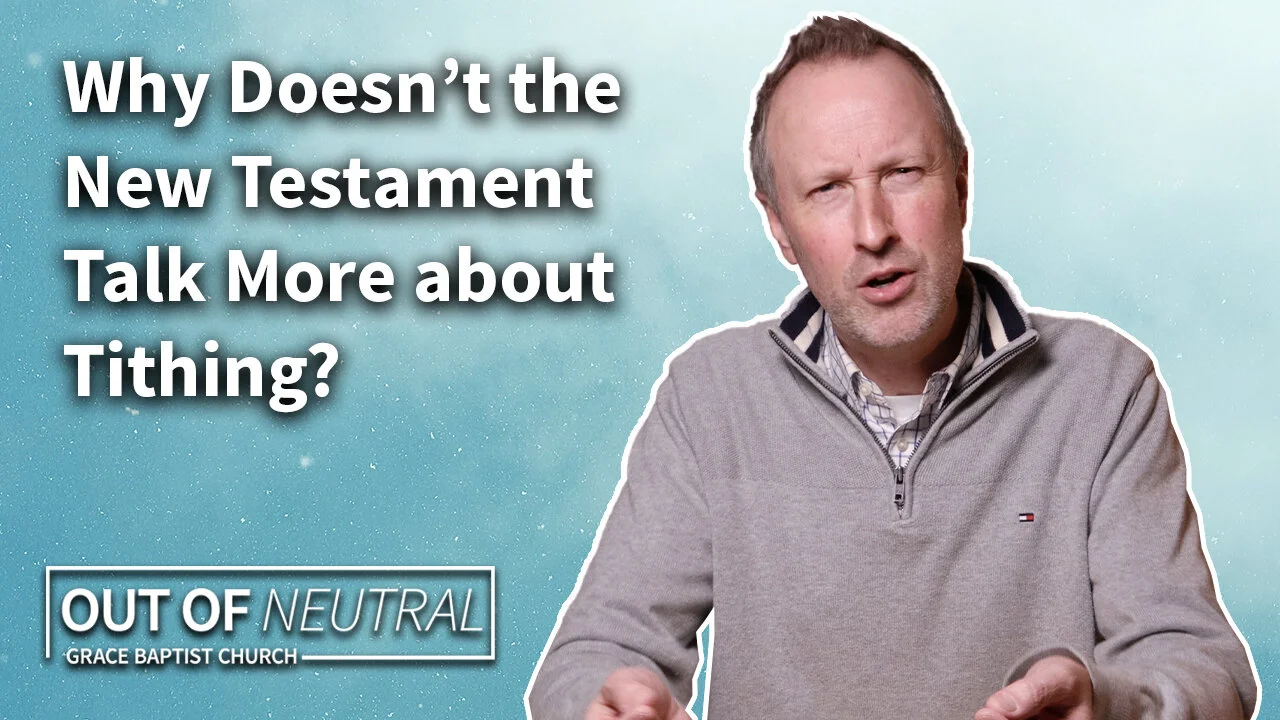Click on the image above for the video of this article or keep reading below for the text version.
As you read the Old Testament, it’s clear that giving God tithes, or the first 10% of your income, is a big thing. It’s modeled by people like Abraham (Genesis 14:17-20) and Jacob (Genesis 28:20-22) even before the law was introduced. It’s commanded in the Mosaic Law (Leviticus 27:30). And when people neglect tithing, God equates it with robbing Him (Malachi 3:8). In the New Testament, it doesn’t seem to be mentioned as much. Understanding why helps us see how God’s vision for our finances has been transformed by Jesus.
1. When Jesus does mention tithing, He affirms it
In the gospels, Jesus speaks of tithing three times. One instance occurs in a parable he taught about a Pharisee who was outwardly conscientious in keeping the law but also proud and self-righteous (Luke 18:12). In the story, the man’s tithing is held up by Jesus as an example of his diligent obedience to God. In the other two instances, Jesus confronts the Pharisees who painstakingly gave a tenth of their spices to God while ignoring justice, mercy, and love (Luke 23:23; Luke 11:42). Jesus doesn’t say, giving God a tenth of your spices is ridiculous, just show justice and mercy instead. Instead, He says, “These you ought to have done, without neglecting the others.” These examples show Jesus affirming tithing while confronting the hypocrisy of people who are only concerned with ‘keeping God’s rules’ but ignoring God’s heart.
2. Jesus’ teaching on finances went deeper than a number
Even though Jesus mostly ministered among Jews who were fairly faithful in the practice of tithing, He warned that people could treat money like a god. He famously taught that “where your treasure is, there your heart will be also” (Matthew 6:21) and warned, “You cannot serve God and money” (Matthew 6:21). The idea seems to be that a person can give God the bare minimum but still put their hope and trust in money for their satisfaction and security. Jesus never taught people to tithe, but frankly, it would have been a lot easier if He did! Instead, He said, “Sell your possessions, and give to the needy” (Luke 12:33), and “any one of you who does not renounce all that he has cannot be my disciple” (Luke 14:33). It’s not that becoming a Christian requires a vow of perpetual poverty, but if we don’t recognize God’s authority over all of our possessions and express that in how we give and how we manage what we have, we probably haven’t understood Jesus’ call to discipleship.
3. The disciples’ response to Jesus went beyond 10%
When you see how people responded to the gospel, it’s not surprising that there aren’t more reminders about tithing. When Jesus calls James and John to follow Him, Mark records, “Immediately they left their nets and followed him” (Mark 1:18). While fishermen were working-class, tax collectors were rich. When Matthew, a tax collector, heard Jesus’ call, Luke writes, “And he left everything behind, and got up and began to follow Him” (Luke 5:28). Zacchaeus, who was also a tax collector, promised to repay anyone four times what he had cheated them, but he also announced, “Lord, the half of my goods I give to the poor” (Luke 19:8). Then in the early church, people sold their possessions to give to those in need (Acts 2:45) and even sold land and houses to provide for those with less (Acts 4:34-35). It’s not that they weren’t familiar with the concept of tithing, but as they reckoned with how much Jesus had sacrificed for them and the spiritual riches they enjoyed in the gospel, they wanted to give more.
If we’re to take Jesus’ teaching seriously, we need to ask whether money has captured our hearts. We need to ask whether it’s become a god to us, with promises of pleasure, satisfaction, and security. Do you see everything you have as a gift from God to be managed generously and sacrificially for His glory? Or do you give God a little to ease your conscience so you can spend the rest on yourself? We break money’s hold on our lives when we take steps of faith in our giving to declare, ‘Money has no hold on me!’
In awe of Him,
Paul





